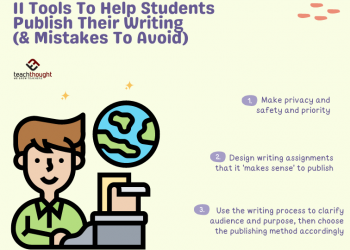Should top university leadership roles be open to non-Ph.D.s? Increasingly, I’ve become convinced that the answer to this question should be yes.
The (mostly) accepted consensus within academia is that a terminal degree is almost always table stakes for most academic leadership roles.
The thinking goes that only someone who has internalized the core values of cultural touchstones of academia, through the rigors of completing a doctoral degree, will be sufficiently prepared for top university leadership roles. Only a fellow Ph.D. holder will get the existential value of institutional shared governance, faculty autonomy and academic freedom.
As the thinking goes, professors will only ever truly respect their fellow guild members. Anyone who has not demonstrated the capacity to create new knowledge as an accepted member of a scholarly discipline, a status in which earning a Ph.D. signifies, will ultimately be incapable of understanding and supporting the work and careers of the faculty.
Here I must pause and own up to the fact that for most of my now 20-plus-year academic career (I got my Ph.D. in 1999), I largely held to the belief that a doctorate was the only valid passport to academic leadership roles. And even today, I remain skeptical and suspicious of those from outside academia (and who do not hold a doctorate) who are recruited to university presidencies and other leadership roles.
What has caused me to evolve my thinking is the time I’ve been spending with university folks who are not doctorally trained but who would make fantastic leaders in top academic posts. Granted, my view is restricted to colleagues on the online learning, digital education and academic innovation sides of the university house. As a nonfaculty digital/online education person, I tend to run in circles that mix faculty and nonfaculty roles.
Still, some of the most capable, effective and inspiring colleagues I know—people deeply dedicated to their university’s mission and the postsecondary academic project—have educational credentials different from an Ed.D. or Ph.D.
Five reasons why higher ed leadership roles should be open to those without a Ph.D.:
- Training: There is almost nothing that I do in my current academic position that overlaps with what I learned in Ph.D. school. My dissertation is titled “Economic Viability and Marriage: Life Course Transitions Among White and African Americans, 1967-1993.” If you can figure out how the expertise gained in surviving coursework, prelims, proposal and that specific dissertation research in any way prepared me for a leadership role in online learning, then you are smarter than I am. It could just be that someone building a career in academia, who has been trained in business, policy, finance or the law, is better prepared to manage and lead the complex organizations that are our universities.
- Organizational Expertise: Higher ed’s conventional wisdom is that we operate in a zero-sum environment. Any resources spent on staff positions are that many fewer dollars to spend on faculty. The expertise of higher ed professional staff who have built careers helping their institutions navigate the complexities of radically changing demographic, technologies, competitors and funding realities is seldom celebrated. This is not to say that leaders who come from the faculty cannot or have not transitioned into institutional roles where they can lead organizational change. Only that the net to find these future leaders should be cast more widely to encompass those higher education professionals who have been focusing on organizational change but come from backgrounds other than faculty roles.
- Leadership Skills: Does success in a Ph.D. program select for leadership skills? My dissertation research was a solo deep dive. In getting that credential, I learned nothing about what it means to lead an organization of any size. In fact, I think I’m much more comfortable being locked in a room with a bunch of books than I would be leading a large and complex organization. This is not to say that some academics with Ph.D.s can’t be effective leaders. We have many examples of university leaders who came from traditional disciplinary backgrounds. Again, the question is if we should be considering recruiting our university leaders (at all levels) from people who have (and are) working in higher education and demonstrating leadership skills but lack that Ph.D. credential.
- Experience Within and Outside Academia: The best thing I did to learn how to be better in my academic career was to spend a few years outside academia. Much of the professional experience that I’ve drawn on in my academic career leading online learning initiatives came from my time working to develop the educational division of Britannica. While some Ph.D.-trained academics move inside and outside universities, that career path remains somewhat unusual. Conversely, I know many current non-Ph.D. academic leaders with prior experience in consulting, technology companies, publishing and other industries. The perspectives they bring from their time outside higher ed are valuable to universities as they navigate a complex and challenging future.
- Institutional and Ecosystem Complexity: Nothing in my doctoral studies taught me how to provide effective leadership for, or even to understand, the modern university. The Ph.D. apprentice model taught me how to do original social science research. In graduate school, I learned the language and methods of my academic discipline. Did getting a Ph.D. prepare me for my current higher ed role? Not really. More importantly, are Ph.D.-trained academics the only higher ed people equipped to lead universities in times of exceptional complexity and rapid change? Might there exist colleagues already at our universities who fill leadership roles, are ready to go to the next step of more responsibility and are experienced and equipped for that next challenge in all the attributes save possessing a doctorate? The successful university leader of tomorrow will likely need to make choices wholly different from their predecessors. Universities operate within a rapidly changing ecosystem, defined by new competitors and potential partners, demographic headwinds, disruptive technologies, and diminished public support. We need the best people to lead our universities, and we should be more open to finding those leaders with different educational credentials than ours.
Do you work with colleagues at your institution who are amongst the most brilliant and capable leaders you know but are not shooting for the next big academic job because they think not having a Ph.D. is disqualifying? If so, ask who loses out from academia’s ingrained bias to favoring only Ph.D.s for university leadership roles.
Source by www.insidehighered.com










